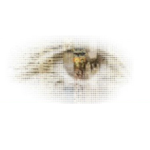
We are delighted to announce that 4 TCD-based researchers have received funding as part of a ground-breaking joint call between the Irish Research Council (IRC) and UKRI’s Arts and Humanities Research Council (AHRC) supporting new collaborations between Ireland-based and UK-based researchers working within the field of Digital Humanities. The success of these researchers means that Trinity College Dublin is the most awarded research institution across both Ireland and the UK within this collaborative funding programme.
The Trinity-based awardees are:
- Professor Christine Casey (TCD) and Ms Sophie Chessum (National Trust)’s 3D CRAFT network will bring together art historians, heritage professionals, conservators, and computer scientists to digitally recraft lost interiors in Britain and Ireland, making damaged, many layered, or repurposed historic buildings accessible to cultural heritage visitors, academic and online audiences. Exploring the interface between conservation, research, and 3D visualisation, they aim to develop a clear UK-Ireland research strategy for the dynamic and analytical presentation of significant lost interiors.
- Dr Michelle Doran (TCD), Prof Jane Winters (School of Advanced Study, University of London) and Dr Charlotte Tupmann (University of Exeter Digital Humanities Lab) in collaboration with partners from Lancaster University, King’s College London, National University of Ireland Galway, University College Cork and University of Glasgow. The UK-EI Digital Humanities Association: A Network for Research Capacity Enhancement will establish the pathway for the creation of a permanent Digital Humanities (DH) association across Ireland and the UK, aiming to serve a variety of stakeholders and communities. Bringing together a diverse range of DH research groups, institutions and practitioners from Ireland and the UK (both within and outside the Higher Education sector), the network will build consensus around five key concepts that are crucial to advancing the field: sustainability, inclusivity, training, advocacy and career progression. In doing so, the network will create the foundation for the UK-EI DH Association and develop a clear roadmap for collaboration between the two countries.
- Ms Arlene Healy (TCD) and Prof Lorna Hughes (University of Glasgow), IIIF for Research (IIIF4R) Network. This network will seek to promote dialogue between curators and developers involved in the development of IIIF and scholars working in relevant areas such as manuscript studies, bibliography, media history and digital humanities, with a view to identifying potential areas where the use of IIIF can transform research methods and create new forms of collaborative dialogue.
- Dr Patrick Walsh (TCD) and Andrew Mackillop (University of Glasgow), Comparing and Combining Early Modern Irish and Scottish Land Records: New Transkribus and Natural Language Processing Approaches. The National Records of Scotland (NRS) and Property Registration Authority of Ireland (PRAI) are the repositories for the Scottish Register of Sasines and Irish Register of Deeds respectively. These are among Europe’s most detailed and comprehensive early modern records relating to the ownership, transfer and financial utilisation of land. They offer the ideal basis around which to foster new interdisciplinary partnerships between two internationally significant archives in Ireland and the UK, the Higher Education (HE) sector in the respective countries, and engagement with civic and public stakeholders. This network aims to develop an innovative set of interdisciplinary collaborations between digitization specialists and experts in the respective archives, HE-based DH specialists, academic disciplines and potential public user groups.
Commenting on Trinity’s success within the programme, Prof Jennifer Edmond, Co-Director of the TCD Centre for Digital Humanities, stated, “We are thrilled to see so many colleagues taking advantage of this scheme, and the opportunities it will create for broadening our understanding and practice of digital methods in the humanities at TCD and beyond. It is a testament to the breadth and strength of their work that so many of these networks have a base in TCD, we look forward to seeing the many exciting results that will arise from these collaborations.”
These networking grants are the first of two proposed AHRC-IRC joint funding calls in the Digital Humanities. Follow @DigitalHumanTCD and @IrishResearch for further updates.
